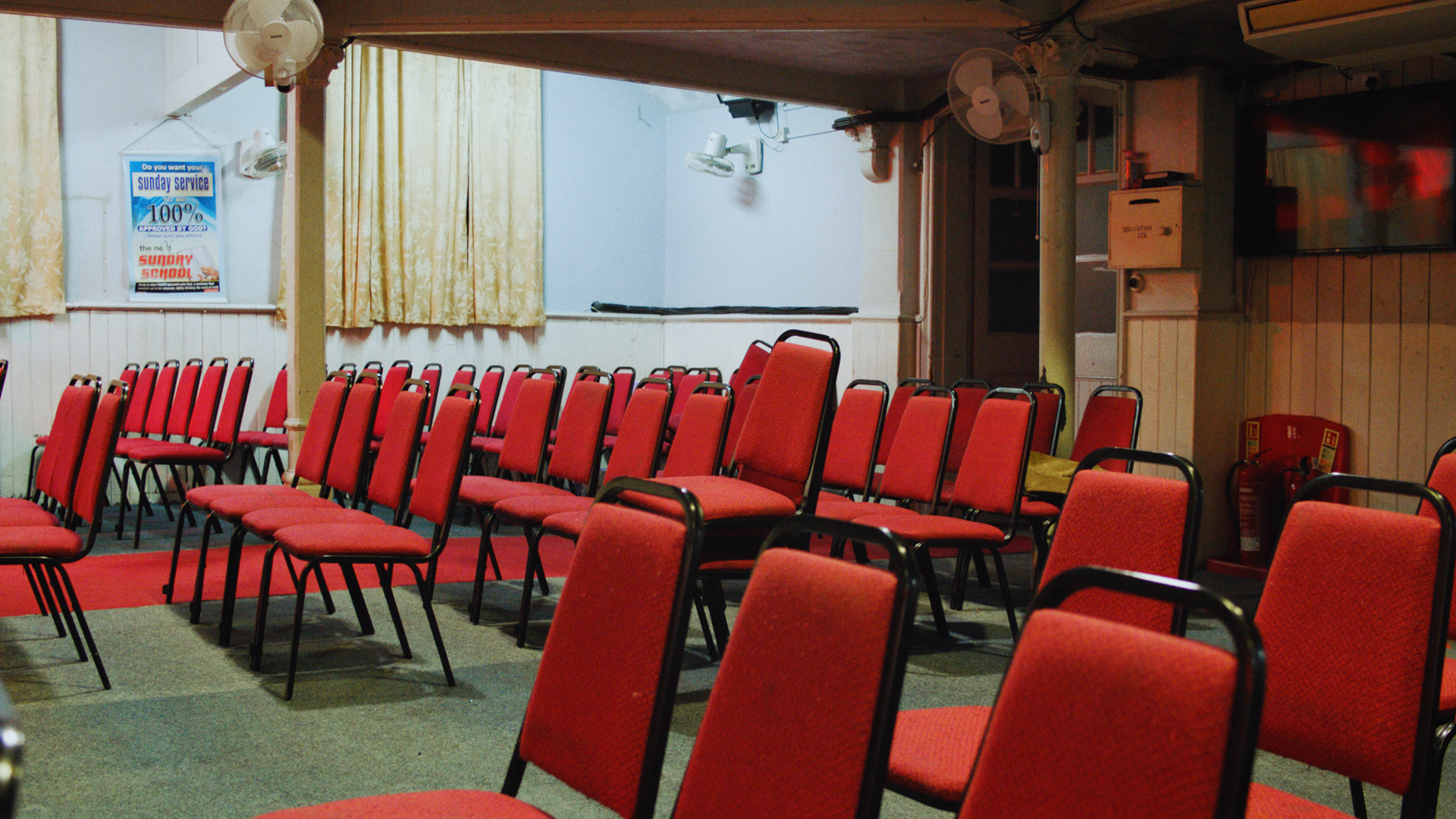THE MASSES —
Directed by Dorothy Allen-Pickard
THE MASSES is a visceral and empathetic portrayal of three South Londoners devotion to their respective religions: Islam, Christianity and Football.
Premiered at Sheffield Doc/Fest in June 2019. Now live on 4:3. 13mn
Director_ Dorothy Allen-Pickard
Producer_ Julie Vergez
Featuring_ Amed, Micky, Gabriel
Cinematographer_ Mike Simpson
Additional Cinematography_ Jack Wells
Focus Puller_ Matt Farrant, Michael Hobdell
Assistant Camera_ Jonnie Haldon, Leon Frind
Sound Recordists_ Don Nelson, Adina Istrate, Mia Zur-Szpiro, Ollie Drummond, Ben Hauke
Editor_ Rhiannon Mayor
Colourist_ Myles Bevan @ Time Based Arts
Associate Producer_ Jenny Broad
Production Assistants_ Fraser Thorne, Stanley Brock
Produced for My Accomplice
Executive Producer at My Accomplice_ Jamie Clark
Producerat My Accomplice_ Aleksandra Bilic
Made with the support of the BFI Doc Society FundDoc Society
Executive Producer_ Lisa Marie Russo
Director_ Sandra Whipham
Business Affairs Executive_ Christine Howard
Production Manager_ Hannah Bush Bailey
Film Fund Officer_ Lynn Nwokorie
Thanks to Baitul Aziz Islamic Cultural Centre and Imam Mohammed, Christ Apostolic Church Surrey Docks District, Millwall Football Club and Billy Taylor and Sammy Brough, Millwall Cafe and Alan
Words by Dorothy —
"Growing up in South-East London, I have always been surrounded by different cultures, religions, and football fans. While the language of football didn’t mean much to me, I understood it metaphorically, as a way for fans to relate to one another. Like religion, it’s a culture that helps to create a sense of place, history, and belonging. But right now these cultures are under threat and each group’s sense of belonging to South-East London is challenged. The right-wing media encourages marginalised groups to blame each other for social issues, such as shortage of housing and state resources, and little is being done to demonstrate what these groups may have in common. Football and religion can help give meaning to people’s lives, however this tribalism can also create fractures that draw them apart. If marginalised groups could identify with each other across distinctions of colour and creed, they would be a force to be reckoned with, one that could truly challenge political scapegoating, populism and the far-right. Rather than replicate the toxic narratives of the media that focus on difference, I aim to explore and demonstrate how, as the MP Jo Cox, murdered in 2016 by a far-right extremist had stated, ‘WE ARE FAR MORE UNITED AND HAVE FAR MORE IN COMMON THAN THAT WHICH DIVIDES US.’
Particularly given the urgent context of the refugee crisis it is essential that we celebrate our differences and similarities. One thing the men have in common is that their communities and architectural centres are all threatened by gentrification and rising xenophobia. If these three men can understand each other’s perspectives, what’s to say it can’t happen on a larger scale?"
Here are a few statistics that outline just how urgent this film is: Two in five Americans say Islam 'is incompatible with US values' (Al Jazeera); Religious hate crime has risen 40% in England and Wales in the past year – with more than half directed at Muslims (Independent); 76% of Muslim respondents feel strongly attached to the country they live in (European Islamophobia Report); London temporary housing costs are up 50% in 10 years, and over 31,000 residents will be affected by the city’s regeneration in next decade (BBC); The £2bn regeneration project known as New Bermondsey threatens to demolish Millwall FC’s stadium (Guardian); There’s been a 22% increase in reports of racism among UK football fans in the past year (Kick it Out).






THE MASSES tells the story of three South London neighbours, a Muslim, a Christian and a Millwall fan, who ostensibly share little in common. As we gain a deeper insight into their lives and dissect themes of identity, belief and community, it becomes clear they have much more in common than first meets the eye. It is the story of South Bermondsey and how locality provides a shared context for the men, giving them an understanding of the world and their place in it. The observational footage brings to light existing tensions around family, worship, and the challenges of belonging to individual groups as well as a multicultural society.
